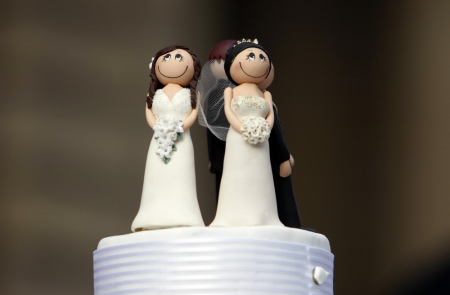7th Circuit weighs if Catholic school can fire lesbian teacher over same-sex marriage

The U.S. 7th Circuit Court of Appeals heard oral arguments in the case of a Catholic school sued for not renewing the contract of a teacher in a same-sex relationship, leaving an attorney representing the school optimistic.
Oral arguments took place before a three-judge panel in the case of Starkey v. Archdiocese of Indianapolis Monday.
The case surrounds the former co-director of guidance at Roncalli High School in Indianapolis, Lynn Starkey, who sued the school after she was not offered a new contract in 2019 over her same-sex marriage, which the school deemed a violation of the its code of conduct.
Starkey appealed to the Seventh Circuit after a lower court had previously ruled in favor of the school. Luke Goodrich of the Becket Fund for Religious Liberty, which is representing the archdiocese in the litigation, spoke with reporters Monday after the hearing.
Goodrich predicted that the case’s outcome will rest on two legal doctrines: the constitutional doctrine of the ministerial exception and the religious exemption in Title VII of the Civil Rights Act of 1964.
“The constitutional doctrine of the ministerial exception says that when an employee holds an important position within a religious institution, the government is not allowed to interfere with the religious organization’s choice of who fills that position,” he said.
“Otherwise, the government would become entangled in questions of religion, and it’s… really the opposite of the separation of church and state for the government to dictate to religious organizations who it can and can’t hire to carry out religious functions,” Goodrich added.
Starkey brought the lawsuit under Title VII civil rights law, which “prohibits discrimination in employment,” contending that her termination violated the federal statute banning discrimination based on sex.
Starkey's lawyer, Kathleen DeLaney, disagreed with the federal court's 2021 decision last year in favor of the school, telling The Indianapolis Star that she was "concerned about its potential impact" on "all educators in religious schools."
Title VII contains a religious exemption clarifying that the statute shall not apply to a “religious corporation,” Goodrich said.
“The judges also showed a lot of interest in that argument today,” he said, recalling how, “one of the judges said it seemed like a very plain reading … of the statute and that should prevail.”
“So we’re very optimistic, very happy with how the argument went and expect the court to reach what is really a commonsense result that the Catholic Church can, in fact, ask educators in Catholic schools to uphold Catholic teaching,” he added.
“We expect the 7th Circuit will likely reach the right result and … that provides necessary protection for religious groups to form these communities to teach their faith to the next generation.”
Goodrich believes a ruling against the archdiocese “would open up tens of thousands of religious organizations across the country, including thousands of religious schools to lawsuits and potential multi-million dollar liability” because “many faith groups operate schools.”
He said, “it’s commonplace for all religious schools to ask their key leaders, teachers and others who are guiding their students to uphold and embody the mission, the vision and the values of that religious organization.”
In a statement published ahead of Monday’s oral arguments, Becket noted that Roncalli High School asks its employees to “sign agreements to uphold the Catholic Church’s beliefs in their personal and professional lives.” Entering a same-sex marriage constituted a breach of that agreement, and the school fired her.
Goodrich identified the prospect of the U.S. Supreme Court taking up any further appeals of this case as unlikely.
“A ruling in favor of the archdiocese here would be fully in line with prior Supreme Court precedent and really fully in line with the way that other circuits have been addressing this issue,” he said. “And so the Supreme Court doesn’t usually weigh in to take a case when all the courts are kind of reaching the same result.”
“I think, by contrast, if the 7th Circuit ruled in some way against the archdiocese or against the school … I think that would increase the likelihood of Supreme Court review because that sort of a ruling would be out of step with Supreme Court precedent and precedent from other circuits,” he maintained.
Becket cites the 2020 ruling in Our Lady of Guadalupe School v. Morrissey-Berru as an example of Supreme Court precedent that will favor the Archdiocese of Indianapolis.
In that case, the Supreme Court ruled 7-2 that religious schools had wide latitude to dismiss teachers for poor performance because they serve as “ministers” instead of secular employees.
The Our Lady case came eight years after the unanimous Hosanna-Tabor decision that strengthened the idea of a “ministerial exception” exempting religious schools from employment discrimination laws.
Ryan Foley is a reporter for The Christian Post. He can be reached at: ryan.foley@christianpost.com





















